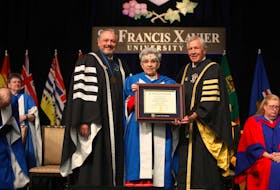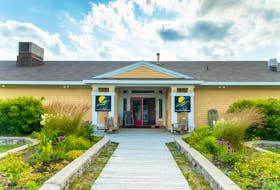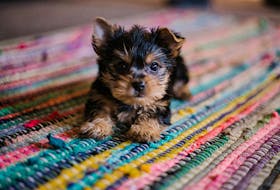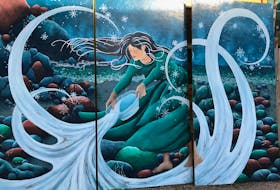'More than shooting'
BROOKFIELD, N.S. — Kelly Countway says the idea of hunting is all about conservation, and “conservation is all about the future.”
Countway is the founder and president of Women That Hunt (WTH) - an organization dedicated to conservation and education - who lives in Brookfield, N.S., and spoke recently by phone about the non-profit, the hurdles and achievements.
“Hunting is more than just a harvest,” says Countway. “It is self-sustaining and a source of pride. I can provide good food for my family and do it by myself. I can fill the freezer with one harvest.”
For Countway, the term ‘hunting’ is short for ‘hunting for food’ and the activity is bigger than the stereotypical images the word may conjure.
“Hunting encompasses more than shooting,” she says.
Countway lists fishing, trapping, foraging, gardening, caring for egg-laying hens and preserving or pickling fruits and vegetables, as part of the larger picture. Moreover, if she does not have room in her freezer, she may still go out to hunt but does not need to harvest.
Countway was not always a hunter. Her husband hunted but she had no desire to learn the skills. As it happened, friends visited, and one was a woman who hunted. With some encouragement, by the end of the visit Countway had signed up for the next female-led group hunt. Countway remembers wondering if she would be able to squeeze the trigger. However, once she experienced the depths of the wilderness, felt the camaraderie and learned to think about hunting as conservation, Countway was hooked.
“The switch went off in my head and … hunting quickly turned into a passion,” she recalls.
Not only did she want to pursue hunting, she wanted to share the experience with other women, children and youth. Yes, there was filling one’s freezer, but her concerns were bigger than that.
For thousands of years, hunting skills were handed down. With the decline of hunting, there are fewer opportunities to convey the knowledge. Countway says it is important for the future to teach children and youth to hunt with conservation, ethics and sustainability in mind.
WTH quickly evolved with a mission to build a conservation community by providing opportunity, education and inspiration.
“When we started, I think people didn’t take us seriously,” she says.
As a female who hunts, Countway knows there are biases. For example, equipment and clothing are designed for men who, on average, have bulkier frames, longer limbs and larger hands and feet. As if not disconcerting enough, Countway recalls watching a favourite hunting show on television and hearing the respected host explain that he would not take a woman on a big hunt.
How did Countway respond?
“He hasn’t met me yet!” she says, and graciously adds that the host has since featured female hunters on the show.
Countway and her peers at WTH are volunteers. The group’s achievements over the past five years include the development of youth camps in summer, an annual youth expo, the Ambassador Program, a bursary competition, a travelling fundraiser, and the Noaah Registry. The registry is based on the Big Brothers Big Sisters model but designed to pass skills and knowledge to future conservationists.
For more information, visit womenthathunt.com.









